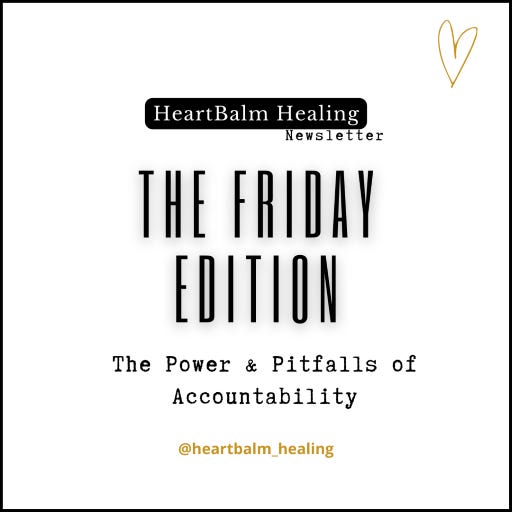The Power & Pitfalls of Accountability
Part of the burden of complex trauma is the weight, destructive force, and mass it holds in our lives; in our bodies, minds, and in every waking moment. It extends to our spiritual and otherworldly beliefs as well, in a way that destroys hope, faith, and trust in law and order including general human rights, natural laws, national justice and liability, and the universally patterned order of all things higher than our own. When reason, logic, safety, and human decency have abandoned a life from early childhood onward this sense of burden and injustice can feel baked into our bones, and our very being. It can feel irreparable, and insurmountable. This burden can turn to internalized self-hatred, feeling constantly under siege, living in a world on fire, never feeling safe or protected, and creating a deep internal well of distrust, hopelessness, and cynicism.
Without justice and accountability, especially from a trauma survivor’s point of view, there is no order or reason for life itself. There is merely existing in a world that does not make sense, favors some, and leaves others to a horrible fate. A growing pessimism darkens our thoughts and tells us that trying is failing, wanting breeds rejection, and optimism brings disappointment. The remaining holdout is hope but after so many years with no remedy or actionable results hope becomes a useless concept, and ends up as a burden itself; one more thing that has abandoned us, and thrown onto the trash heap of all unhelpful and out-of-reach concepts. As therapist, Katie Gegg notes,
“Pessimism is a coping strategy that protects us against the vulnerability of having hope.”
Keep reading with a 7-day free trial
Subscribe to HeartBalm to keep reading this post and get 7 days of free access to the full post archives.




